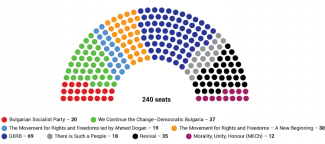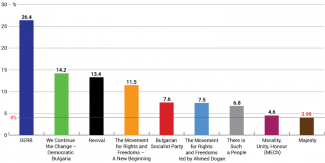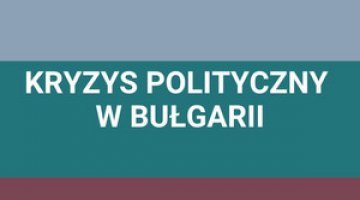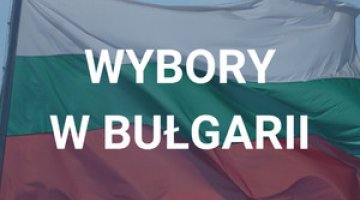Election in Bulgaria: fragmentation of parliament and a strengthened position for the ‘parties of peace’
On 27 October, for the seventh time in the past three years, Bulgaria held elections for its 240-member National Assembly. The centre-right GERB party, led by former Prime Minister Boyko Borisov, emerged as the winning party, securing 26.4% of the vote and 69 seats. The liberal-conservative We Continue the Change–Democratic Bulgaria (PP–DB) coalition, led by another former Prime Minister Kiril Petkov, came second with 14.2% of the vote and 37 parliamentary seats. The nationalist and pro-Russian Revival party ranked third with 13.4% of the vote, equating to 35 seats. Voter turnout was 38%.
Once again, the election has failed to yield a decisive result, signalling prolonged challenges in forming an executive body. Due to the fragmentation of the new National Assembly, with eight parties now represented, neither a potential coalition between the two largest parties nor one formed by GERB and the nationalist parties would achieve a majority.
Commentary
- The winning GERB party has achieved its best result since 2017. Consecutive snap elections appear to favour Borisov’s party, as it portrays itself as a stabilising force in the political landscape, open to cooperation with most parliamentary groups. In the last seven elections, the party has secured around 25% of the vote and 66–69 seats. The GERB’s primary rival, the PP–DB, has experienced a steady and significant decline in support; since its founding in 2021, it has lost nearly half of its seats. The Movement for Rights and Freedoms (DPS), which represents the Turkish minority, has also faced a structural crisis. Following the previous election, it was the second-largest political force in parliament. However, it has since split, with representatives contesting the recent election as two distinct parties: the DPS – A New Beginning, led by Delyan Peevski, which received 11.5% of the vote and 30 seats, and the DPS led by Ahmed Dogan, which garnered 7.5% of the vote and 19 seats. The DPS’s division into two mutually hostile factions, beginning in summer 2023 over its readiness to form a government coalition with GERB, has weakened its coalition potential and hindered Borisov’s efforts to form a majority coalition.
- The election has strengthened those parties which are reluctant to support Bulgaria’s participation in Western security structures and aid to Ukraine. They position themselves as the ‘parties of peace’, including the Revival party, the anti-establishment Morality, Unity, Honour (MECh) party, the Bulgarian Socialist Party, and the populist There is Such a People (ITN) party, which does not have a clear stance on these issues. Together, these parties now account for almost a third of the National Assembly. The MECh party’s achievement in surpassing the electoral threshold came as a surprise. The party was recently founded by Radostin Vasilev, a former legal director of CSKA Sofia football club and minister of sport in the Petkov government (2021–22). MECh has called for Bulgaria to immediately cease its support for Ukraine.
- The parliament’s increasing fragmentation suggests that the prospect of forming a stable government remains uncertain, while the entrenchment of the current political crisis appears likely. Now, eight parties are represented in parliament, whereas previously there were seven. One possible, albeit politically challenging, solution involves repeating the previous practice of forming a rotating government composed of GERB and PP–DB. However, for this to occur, Borisov and Petkov would need to overcome their personal animosities, and the prospective government would need support from the divided DPS, particularly Peevski’s faction. A coalition composed of GERB, the DPS – A New Beginning, and ITN would not hold a parliamentary majority. Although Borisov has declared his willingness to cooperate with all parliamentary groups except Revival, an alliance with other ‘parties of peace’ could prove risky due to their instability. Furthermore, such an alliance would undermine GERB’s reputation as a pro-Atlantic party that supports Ukraine.
- If the two largest parties fail to reach an agreement, the likelihood of an interim government once again governing the country will rise, increasing the risk of another snap election in spring 2025. Constitutional amendments introduced during the term of the rotating GERB–PP–DB cabinet (2023–24) have limited President Rumen Radev’s capacity to appoint the prime minister. Currently, he is only entitled to appoint an individual from a narrow group of Bulgaria’s highest-ranking officials, including the central bank governor, the ombudsman, and the head of the National Audit Office.
- Although the prolonged Bulgarian government crisis has had no direct impact on macroeconomic and social indicators, it is hampering the preparation of the country’s long-term economic development strategy. In 2023, Bulgaria’s economic growth rate was 1.8% of GDP, while in the first half of 2024 it was 0.8%, with the unemployment rate standing at about 5%. Despite these positive figures, the successive interim governments have concentrated on administering the country and preparing for snap elections, preventing them from pursuing a long-term development policy. The ongoing absence of a government with a stable parliamentary majority has also resulted in Bulgaria’s weak presence in European politics and solidified the country’s peripheral status in key EU debates on its future.
Chart 1. Division of seats in the National Assembly following the snap election held on 27 October

Chart 2. Results obtained by individual parties




